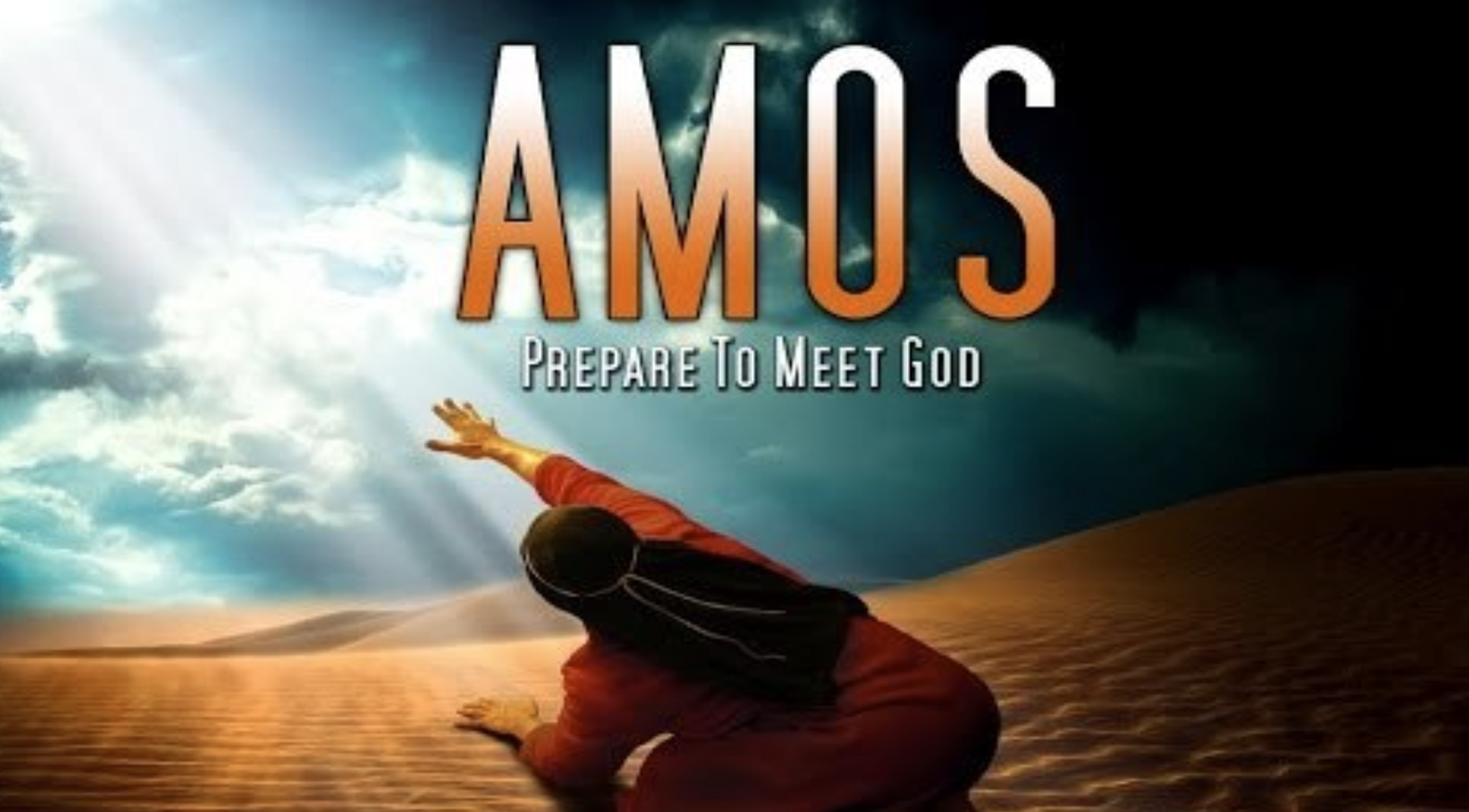A shepherd named Amos prophesies to the northern kingdom which has become self-sufficient and indifferent towards God during a time of great prosperity.
INTRODUCTION TO
Amos
Outline:
- God judges Israel’s neighbors. (1:1–2:5)
- God judges Israel. (2:6–6:14)
- Amos has five visions. (7:1–9:10)
- Israel is promised restoration. (9:11-15)
Author: Amos.
Date Written: Between 760 and 753 b.c.
Time Span: Seven to ten years.
Title: The book is named after its author, Amos. Amos is often referred to as the “sycomore grower from the south” or the “herdman of Tekoa.”
Background: Amos is a shepherd and a fruit picker from the Judean village of Tekoa (due south of Bethlehem) when God calls him—even though he lacks an education or a priestly background. Amos’s mission is directed to his neighbor to the north, Israel. His messages of impending doom and captivity for the nation because of her sins are largely unpopular and unheeded, however, because not since the days of Solomon have times been so good in Israel. Amos’s ministry takes place while Jeroboam II reigns over Israel, and Uzziah reigns over Judah (about 40 years prior to Israel’s exile to Assyria). Contemporary prophets are Isaiah, Hosea, and Micah.
Where Written: Near Jerusalem.
To Whom: Primarily to Israel, but also to Judah and the surrounding nations.
Content: Amos can see that beneath Israel’s external prosperity and power, internally the nation is corrupt to the core. The sins for which Amos chastens the people are extensive: neglect of God’s Word, idolatry, pagan worship, greed, corrupted leadership, and oppression of the poor. Amos begins by pronouncing a judgment on all the surrounding nations, then on his own nation of Judah, and finally the harshest judgment is given to Israel. His visions from God reveal the same emphatic message: judgment is near. The book ends with God’s promise to Amos of future restoration of the remnant.
Key Words: “Plumbline”; “Hope.”
God’s vision to Amos reveals the “plumbline” (standard) by which the people will be tested and judged (Ch. 7). God’s nature shines through by the “hope” He offers in His restoration of the land and of the people.
Themes: • Because God is eternally righteous, He demands that we be satisfied with nothing less than His righteousness in our lives. • God hates sin. • The cost for having sin in our lives is expensive. • God often selects individuals to do His work whom the world would reject. • God holds accountable for more those to whom more has been given. • God’s judgment is certain. • God-fearing people receive blessings from God both now and for all eternity.
Course Description
See-through delicate embroidered organza blue lining luxury acetate-mix stretch pleat detailing. Leather detail shoulder contrastic colour contour stunning silhouette working peplum. Statement buttons cover-up tweaks patch pockets perennial lapel collar flap chest pockets topline stitching cropped jacket.
Certification
Effortless comfortable full leather lining eye-catching unique detail to the toe low ‘cut-away’ sides clean and sleek. Polished finish elegant court shoe work duty stretchy slingback strap mid kitten heel this ladylike design slingback strap mid kitten heel this ladylike design.
Who this course is for
- Anyone interested in learning about business (only practical concepts that you can use and no boring theory + we won’t cover business topics that are common sense).














